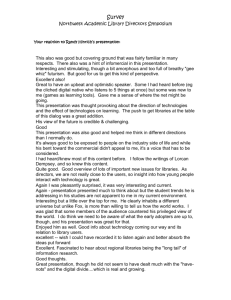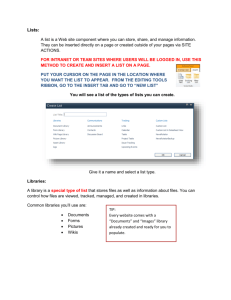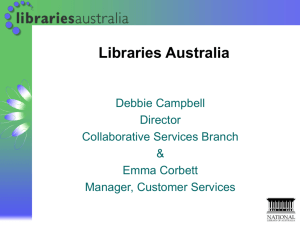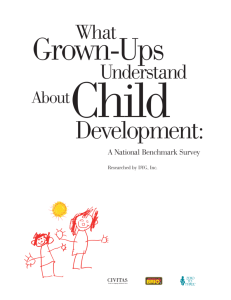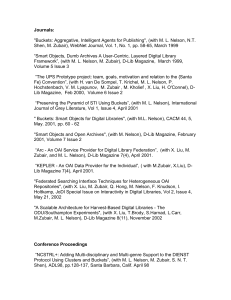CHILDREN AND READING - Nelson Mandela Bay Municipality
advertisement
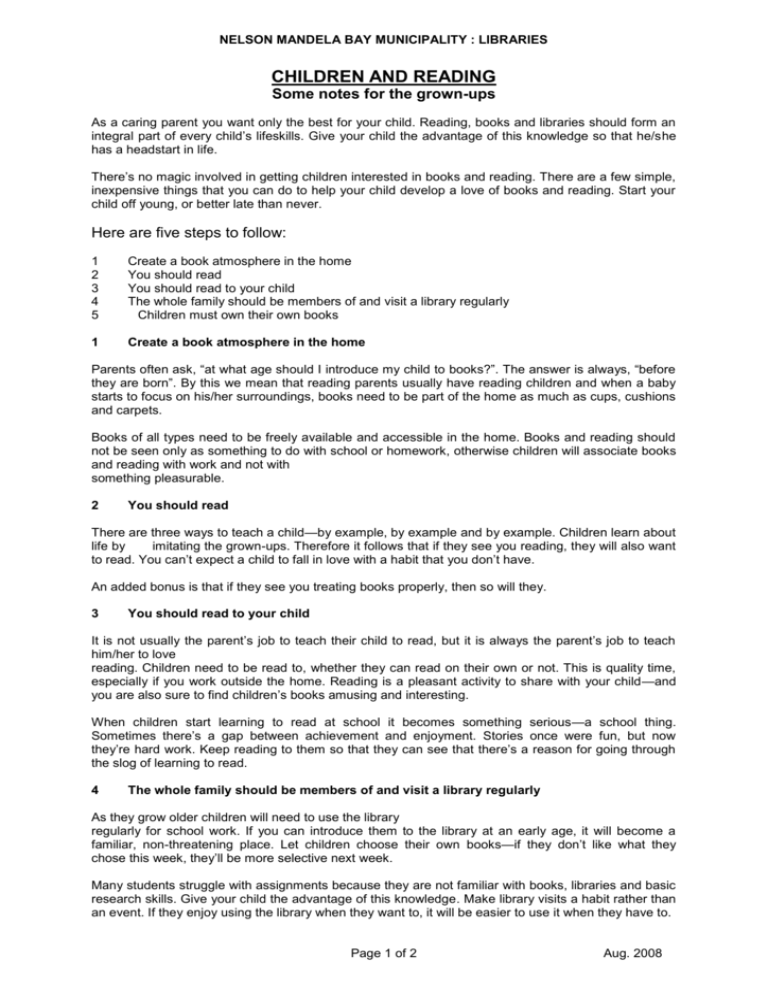
NELSON MANDELA BAY MUNICIPALITY : LIBRARIES CHILDREN AND READING Some notes for the grown-ups As a caring parent you want only the best for your child. Reading, books and libraries should form an integral part of every child’s lifeskills. Give your child the advantage of this knowledge so that he/she has a headstart in life. There’s no magic involved in getting children interested in books and reading. There are a few simple, inexpensive things that you can do to help your child develop a love of books and reading. Start your child off young, or better late than never. Here are five steps to follow: 1 2 3 4 5 Create a book atmosphere in the home You should read You should read to your child The whole family should be members of and visit a library regularly Children must own their own books 1 Create a book atmosphere in the home Parents often ask, “at what age should I introduce my child to books?”. The answer is always, “before they are born”. By this we mean that reading parents usually have reading children and when a baby starts to focus on his/her surroundings, books need to be part of the home as much as cups, cushions and carpets. Books of all types need to be freely available and accessible in the home. Books and reading should not be seen only as something to do with school or homework, otherwise children will associate books and reading with work and not with something pleasurable. 2 You should read There are three ways to teach a child—by example, by example and by example. Children learn about life by imitating the grown-ups. Therefore it follows that if they see you reading, they will also want to read. You can’t expect a child to fall in love with a habit that you don’t have. An added bonus is that if they see you treating books properly, then so will they. 3 You should read to your child It is not usually the parent’s job to teach their child to read, but it is always the parent’s job to teach him/her to love reading. Children need to be read to, whether they can read on their own or not. This is quality time, especially if you work outside the home. Reading is a pleasant activity to share with your child—and you are also sure to find children’s books amusing and interesting. When children start learning to read at school it becomes something serious—a school thing. Sometimes there’s a gap between achievement and enjoyment. Stories once were fun, but now they’re hard work. Keep reading to them so that they can see that there’s a reason for going through the slog of learning to read. 4 The whole family should be members of and visit a library regularly As they grow older children will need to use the library regularly for school work. If you can introduce them to the library at an early age, it will become a familiar, non-threatening place. Let children choose their own books—if they don’t like what they chose this week, they’ll be more selective next week. Many students struggle with assignments because they are not familiar with books, libraries and basic research skills. Give your child the advantage of this knowledge. Make library visits a habit rather than an event. If they enjoy using the library when they want to, it will be easier to use it when they have to. Page 1 of 2 Aug. 2008 NELSON MANDELA BAY MUNICIPALITY : LIBRARIES 5 Children should own their own books Library and school books are wonderful and necessary, but if children own some books, they will own worlds, concepts and imaginings beyond their everyday lives. They will also learn to care for books by caring for their own books. Books are expensive, but they should be seen as necessities rather than luxuries—an investment in your child’s future. There are many ways of acquiring books which will not strain the family budget: visit second-hand bookshops go to flea markets and fétes get friends and family to buy books instead of toys for birthdays and other celebration days swop books with other families There are a great many children’s books in bookshops and libraries and often parents are confused as to what to choose for their child. Don’t be afraid to ask your librarian to recommend something suitable for your child. HAPPY FAMILY READING! Page 2 of 2 Aug. 2008




